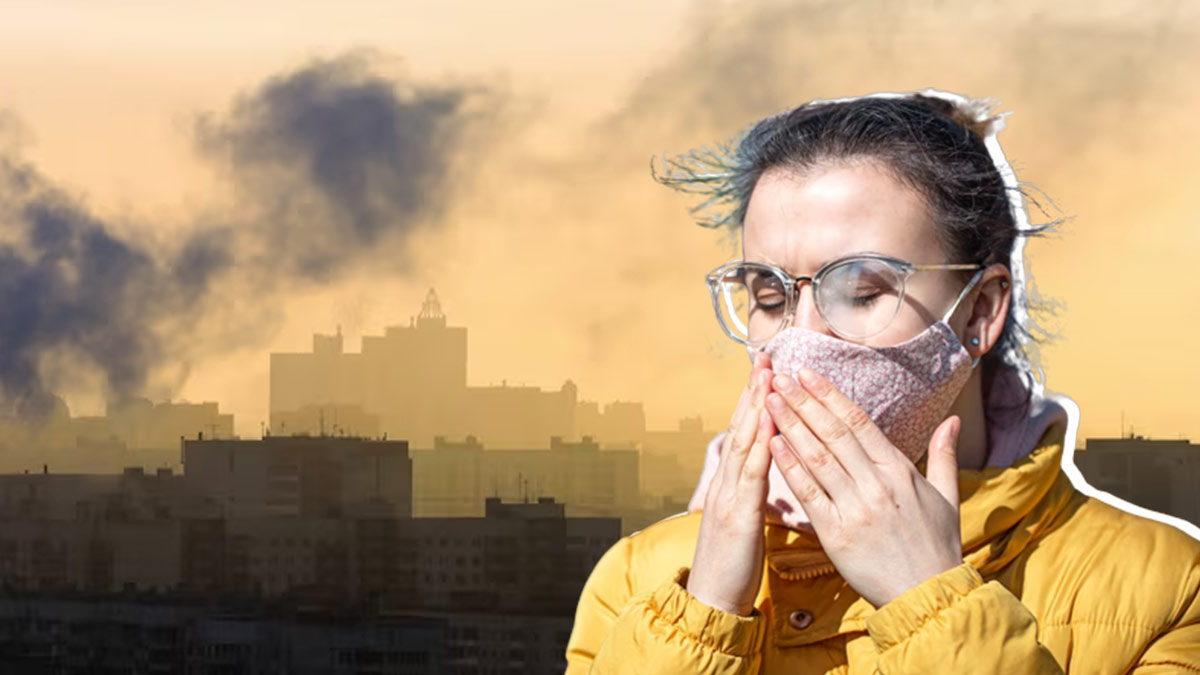
The pollution incident drew to light the dangers of air pollution after the national capital was covered with a dust storm on Tuesday. The Air Quality Index (AQI) in Delhi has deteriorated and remains in the ‘very poor’ category. This can affect your health in many ways by posing various health complications, such as skin problems, eye issues, and cardiovascular health. Hence, taking precautions and understanding how to deal with it can help you protect your health and well-being. Dr Arunesh Kumar, Head and Senior Consultant - Pulmonology and Respiratory Medicine, Paras Health, Gurugram, listed the health complications and some dos and don’ts for the dust pollution.
Table of Content:-
Impact Of Dust Storm On Health

Allergy
Dust storms can cause allergic reactions in many people, especially those with asthma. When exposed to hazardous particles, allergic reactions might occur, resulting in an acute worsening of asthma attacks. It can potentially cause life-threatening breathing difficulties if left untreated.
Skin Complications
Apart from the allergic reactions, dust storms can also pose harm to your skin and lead to irritation and skin allergies. Dust particles and pollution can deplete the skin's natural oils, making it dry. There are also instances of allergic reactions occurring as a result of these dust particles causing irritation, allergies, and other types of rashes.
Also Read: Detrimental Effects Of Air Pollution On Asthma Patients
Effects Cardiovascular Health
Dust storms can even affect your cardiovascular health due to the Particulate Matter (PM) in dust going into the bloodstream. According to National Library Of Medicine, PM in the air can raise the risk of heart disease, stroke, high blood pressure, and other cardiovascular disorders.
Eye Infections
According to a study published in the National Library Of Medicine, persistent exposure to dust particles can also cause eye disorders. Flying dust particles can also go into your eyes, causing difficulties, such as eye injuries, corneal scrapes, and, depending on what gets into it, a much worse condition.
Also Read: Air Pollution Increasing Bronchitis Cases: Symptoms, Treatment, Tips to Mitigate Risk
Do’s During Dust Pollution

- People with breathing difficulties should stay indoors to avoid breathing problems. Also, refrain from sending your children outdoors as much as possible.
- When going out, wear a mask and air-tight goggles for protection against dust, fumes, and smoke particulates.
- You should stay hydrated and always carry a water bottle during high pollution alerts.
- Use High-Efficiency Particulate Air (HEPA) filters in vacuum cleaners and air purifiers to trap dust particles and improve indoor air quality. Do close the doors and windows to avoid exposure to polluted air.
- Dust mites thrive in humid environments, so maintain humidity levels below 50% to reduce their growth.
- If you have breathing problems, severe coughing, or other symptoms, visit your healthcare expert to avoid any complications.
- Regularly clean your living space to reduce dust accumulation. Vacuum clean the carpets and upholstery, and mop the floor using damp cloths or microfiber materials to prevent stirring up the dust into the air.
- When cleaning or working in dusty environments, wear appropriate Personal Protective Equipment (PPE), such as masks, goggles, and gloves to minimise the exposure to dust.
- Wash bedding, including pillowcases, sheets, and blankets, in hot water regularly to kill dust mites and remove their allergens.
Don’ts During Dust Pollution
- You should avoid performing strenuous activities as it leads to inhalation of greater volumes of minute pollutants.
- Avoid driving during poor visibility to avoid accidents.
- Dust storms can also cause eye irritation. Avoid rubbing your eyes to avoid infection.
- Do not direct your car's air conditioning directly on your face and in a very cool mode, as the risks of immediately inhaling fine dust particles are very significant.
- Ensure proper ventilation in your home to reduce indoor dust levels. Open windows or use exhaust fans to remove stale air and bring in fresh air.
- Don't smoke indoors as it contributes to the accumulation of dust particles and other pollutants, which can further compromise indoor air quality.
- Don't overlook the outdoor dust and minimise it by removing shoes at the entrance and using doormats to trap dust particles.
Bottomline
It is advisable to check the weather forecast before stepping out for safety and health reasons. The dangerous levels of air pollution will only last a few days, but they may cause serious and long-term health concerns.
Also watch this video
How we keep this article up to date:
We work with experts and keep a close eye on the latest in health and wellness. Whenever there is a new research or helpful information, we update our articles with accurate and useful advice.
Current Version